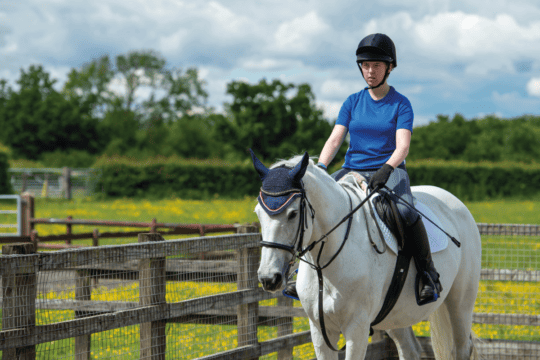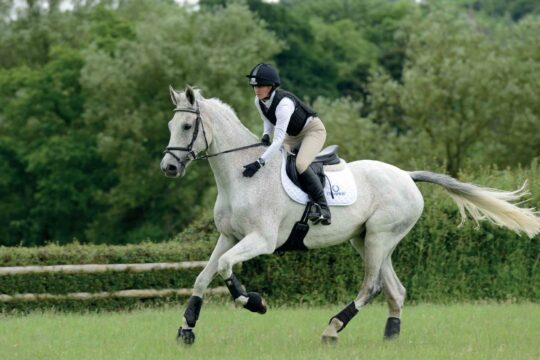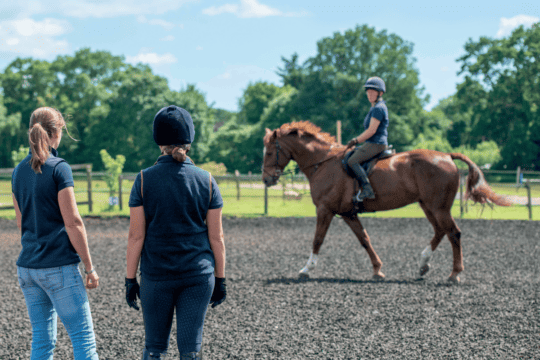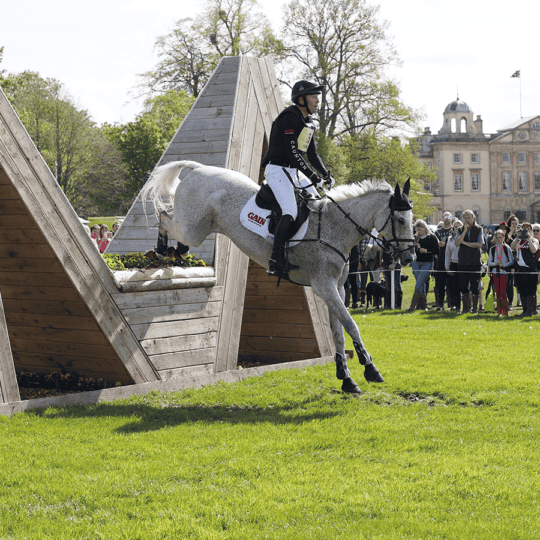Feeling a chink in your competition confidence? Alison Buttery helps you start your season on a high
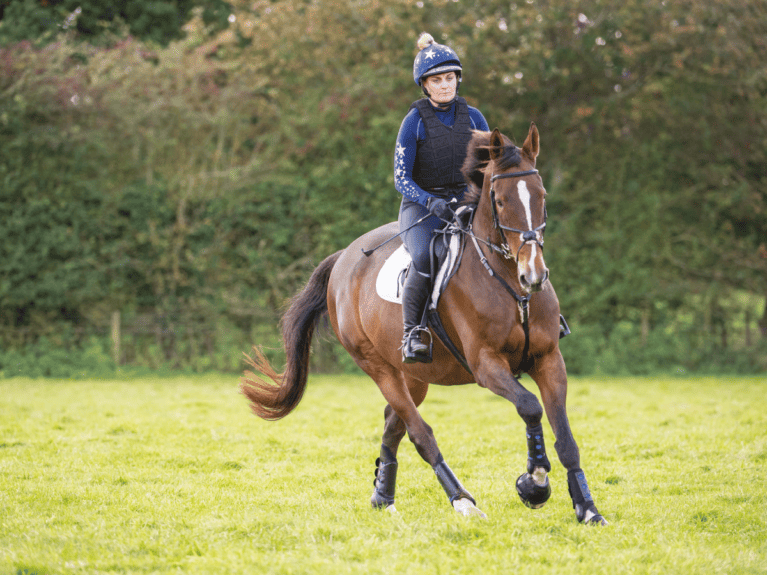
Many riders struggle with nerves and performance anxiety when competing, which can feel debilitating. But anxiety – a feeling of unease, worry or fear about something that might happen in the future – is an entirely normal response to stress. It can trigger your fight, flight or freeze response, causing a range of physical and psychological symptoms.
These instinctive, rapid and very real physical and psychological responses have served us well throughout evolution. However, while the adrenaline-fuelled fight or flight response still works to keep us safe – for example, when we cross the road but then spot a car zooming around the corner, so immediately step back onto the curb to get out of the way – our brains haven’t caught up with the rate of change around us. Simply put, the most ancient part of the brain doesn’t recognise that we’re unlikely to be eaten by a sabre-toothed tiger or attacked by a rival tribe, so the body can produce adrenaline in amounts and situations where it isn’t helpful. The other challenge we face is that the brain doesn’t know the difference between real and imagined threats – it reacts in the same way to both.
The competition conundrum
So, what does all this mean for us as riders going to competitions? Well, competing can feel stressful and be physically exhausting. You might believe that you’re competing against riders better than you (whether that’s really the case is another matter entirely), you’ll likely be riding while other people are watching you, and you’re ‘putting yourself out there’ and being judged against a set of standards. At the same time, competition provides a challenge, the potential for success, achievement and camaraderie, but also uncertainty. All good fun, right? Well, not always.
Competition often triggers the fight or flight response in riders. We experience a wide range of physiological and psychological responses because of the perceived underlying threat to our natural sense of self-esteem. Many riders make the mistake of linking their competitive results with their value or worth as a person, and whenever the demands of competing exceed your perceived or real ability as a rider, anxiety is inevitable.
Plus, whenever stress is perceived as negative, it causes anxiety, so how we’ve been taught or learnt to perceive stress has a big impact on how we view the demands placed on us when competing.
Know your why
The starting point for competing with confidence is to understand why you want to compete in the first place. What are you competing for?
- To have fun with your horse?
- See how your training is progressing?
- Achieve qualifying results?
- Prove something to yourself or others?
- Fulfil a long-held dream to compete in a certain discipline or venue?
There are no right or wrong answers, and everyone has their own reasons for competing, however identifying your core drivers will help you understand your expectations of yourself, your horse and the experience. When you know your why, you can frame competitive experiences in a helpful and constructive way, which means that you can begin to discover what preparation strategies work best for you in the run up to, during and after each competition, building new habits as you progress.
Focus on the process
All too often, riders focus entirely on the outcome or results they want to achieve. These might be important, but when you focus only on the outcomes, you can easily become overwhelmed and unable to properly influence how you ride to reach those goals.
Athletes across a range of sports narrow their focus and get in the zone so that they remain present in what they’re doing in any given moment. They follow a well-practised and highly developed set of routines that allow them to engage only in the process they’re following. They focus on the things within their control, and let go of everything else.
So what can we learn from this? Well, when we focus on what we can do and control, we can ignore all the distractions around us and things we can’t do anything about, which means we’re more self-aware, better able to manage our thoughts and emotions, and ultimately to ride better.
It doesn’t matter whether you’re videoing a Prelim test at home for an online competition, showjumping at a new level, or competing at a new venue, you can practise this approach to focusing on the process rather than only on the outcome. When you’re able to do this effectively, you’ll be way more likely to achieve the results you want!
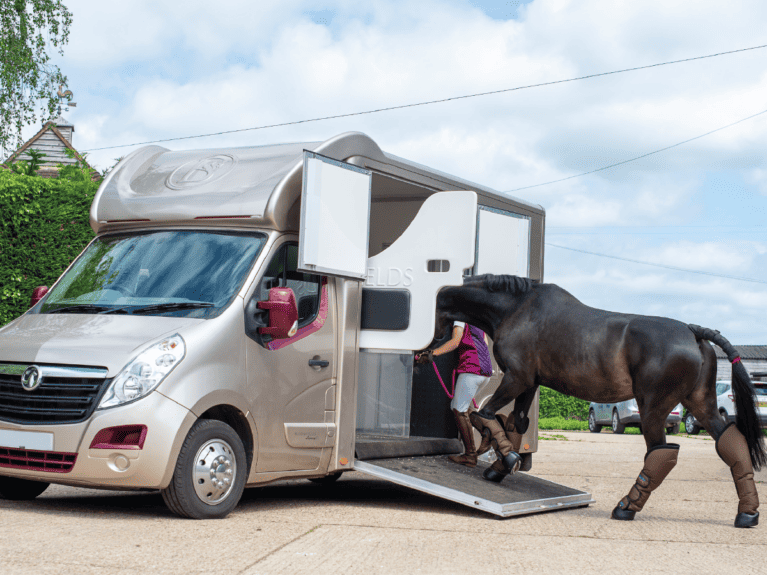
Plan, prepare, perform
One of the most influential factors affecting whether we compete with confidence (and actually enjoy it) is our level of planning and preparation.
When you know your why, you can plan the how. Ask yourself, where are you now in your training? What exactly do you want to achieve? How will you get there? If your goal is to enjoy competing, what needs to change or how might you measure how well you’ve achieved it, for this to happen?
When you accept and understand your current strengths and areas for development as a partnership, you can identify what you need to do to improve. Constructive feedback from your coach is invaluable here, and you can work together to create an action plan to support development of your riding skills and provide opportunities to create a more positive and resilient mindset that will enable you to stay grounded and focused on competition day.
Imagine how much more confident you’ll feel as you go into the arena knowing with 100% certainty that you’ve prepared as thoroughly as possible and you know exactly how you’re going to ride. It’ll even allow you to use the experience as an opportunity to gain constructive feedback from your horse and the people who matter about how you can improve for next time – and so the virtuous circle continues.




